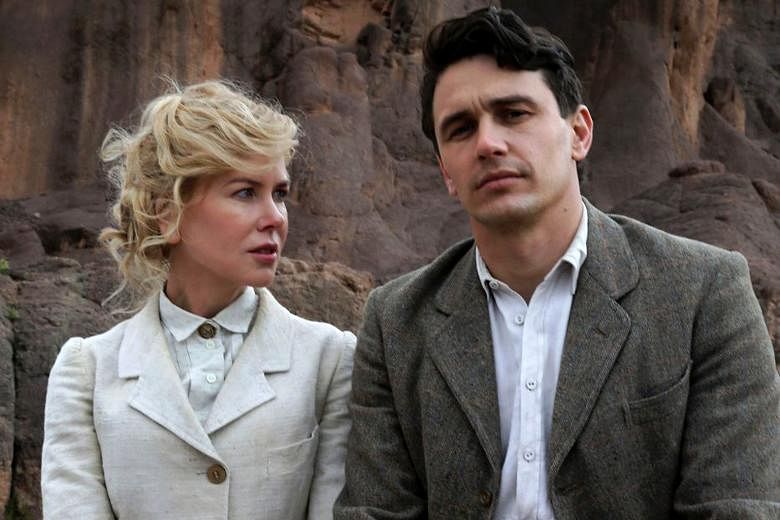Internet users in Singapore have scored a landmark victory against tactics used by copyright holders fighting alleged piracy.
The Singapore High Court has thrown out applications from two Hollywood studios to compel local telcos to release the details of Internet subscribers who allegedly downloaded two movies: Fathers & Daughters and Queen Of The Desert.
The oral decision delivered at a closed-door hearing on Monday was on the grounds of "insufficient evidence", the Attorney-General's Chambers (AGC) told The Straits Times yesterday.
In a rare move, the AGC intervened in civil applications made in the High Court in July last year by Samuel Seow Law Corp (SSLC), the local law firm that represents the two studios.
Queen Of The Desert, which stars Nicole Kidman, is produced by QOTD Film Investment.
Fathers & Daughters, a 2015 movie starring Russell Crowe, is produced by Voltage Pictures - the same studio that went after Internet users here in 2015 for illegally downloading the movie Dallas Buyers Club.
SSLC represented Voltage at the time, and was able to get Singtel, StarHub and M1 to turn over the names, NRIC numbers and addresses of alleged illegal downloaders. Hundreds of letters were sent out with users told to pay $5,000. The Straits Times understands that a handful of Internet users settled for an undisclosed sum.
Last year, SSLC again served papers on Singtel, StarHub and M1 to get details of alleged pirates of Fathers & Daughters and Queen Of The Desert, with a list of over 500 offending Internet Protocol (IP) addresses.
The AGC and the Intellectual Property Office of Singapore (Ipos) said they highlighted to the court that SSLC did not submit "sufficient evidence" to show a link between the IP addresses and alleged illegal downloaders. It was on such grounds that the case was dismissed.
Intellectual property lawyer Cyril Chua of Robinson LLC said: "Many people may be sharing the same Wi-Fi connection. It doesn't mean that the registrant of the line is downloading."
On the other hand, Mr Lau Kok Keng, an IP lawyer at Rajah & Tann Singapore, said requiring the rights owner to link the IP address to the actual infringer is akin to "putting the cart before the horse" - copyright holders need to know who the account holder is to ascertain if he is the actual pirate.
"So it could mean that individuals who illegally download copyright content will be able to get off scot-free because their identities will never be known, short of being caught in the act," said Mr Lau.
Lawyers close to the case said the landmark decision signals a push for copyright holders to enforce their copyright via other means. For instance, the amended Copyright Act that took effect in December 2014 lets content owners seek a High Court order to get telcos to block piracy websites. Before the revised law, they could not compel telcos to block pirated content.
The AGC and Ipos said they had intervened to prevent "an abuse of the process of the court".
In 2015, complaints were made against two SSLC lawyers for breaching ethical guidelines by using threats of criminal litigation in demand letters over the alleged piracy of Dallas Buyers Club.
Mr Samuel Seow, managing director of SSLC, said: "Despite the difficulties, where instructed, we shall press on to find more concrete and substantial evidence which will satisfy the court because it is important to send out the message that the works of copyright holders should be properly protected and enforced accordingly."


